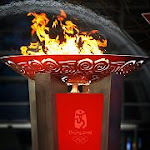
Sometimes no explanation is the explanation. The Cadre demonstrates why it is a 20th century artifact on life support.
African protests repel arms ship
By Richard McGregor in Beijing and Alec Russell in Johannesburg
Published: April 22 2008 09:44 | Last updated: April 22 2008 18:49
A Chinese ship carrying a cargo of arms for Zimbabwe may have to return home, Beijing conceded on Tuesday, as diplomatic, political and judicial pressure mounted across southern Africa to stop the consignment from reaching its destination.
Since the ship arrived off the coast of South Africa last week, with crates of mortar shells, rocket-propelled grenades and AK-47 rounds bound for President Robert Mugabe’s armed forces, a coalition of human rights groups, trade unions and politicians have united to block its progress. The dispute has threatened to embarrass China, which is keen to avoid a further controversy in the wake of criticism of its record in Tibet, in the countdown to the Beijing Olympics.
On Tuesday, in China’s first public reaction to the saga, Jiang Yu, a foreign ministry spokeswoman, defended the shipment as “perfectly normal trade in military goods between China and Zimbabwe”. She said the shipment was the product of a deal signed last year and was unrelated to “recent developments” in Zimbabwe, an apparent reference to last month’s disputed election.
But she added the fact that the consignment might now be impossible to deliver had prompted the shipping company to consider returning with the cargo to China.
The comments came after Zambia’s President Levy Mwanawasa lent his support to the protests against the ship, calling on other southern African countries not to let it dock in their ports.
“I hope this will be the case with all the countries because we don’t want a situation which will escalate the [tension] in Zimbabwe more than what it is,” Mr Mwanawasa said, referring to the decision by Mozambique not to let the ship dock.
His intervention was striking. Leaders of the regional grouping, the Southern African Development Community, of which he is the chairman, have traditionally shied away from confronting Zimbabwe.
Although the opposition Movement for Democratic Change was originally declared the winner of Zimbabwe’s parliamentary elections, that has now been thrown into doubt by a series of recounts forced by the ruling Zanu-PF. The results of the presidential elections have still not been published more than three weeks after the poll.
When the An Jue Yang docked off the South African port of Durban last week the South African government said it would not oppose the passage of the arms overland to its neighbour, Zimbabwe. But a powerful trade union later said its workers would not unload the cargo and last Friday night the High Court barred the arms’ passage on South African territory after an Anglican archbishop argued they would be used to oppress the opposition.
The ship then left Durban and has been reported to be heading for Angola or Namibia, two of Zimbabwe’s traditional allies in the region.
Guo Xiaobing, a researcher at the China Institute of Contemporary International Relations in Beijing, said the Chinese government in recent years had worked hard to ensure its arms trade did not breach global standards.
In a further twist, a German bank has obtained a court order to impound the cargo of the ship as it seeks to recover unpaid debts from Zimbabwe, it emerged on Tuesday.
Copyright The Financial Times Limited 2008


No comments:
Post a Comment